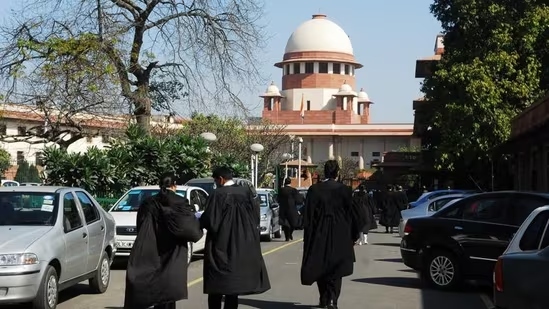AIBE 2024: In a significant ruling, the Supreme Court of India has issued an interim order permitting final-year law students to register and sit for the All India Bar Examination (AIBE) scheduled for November 24, 2024. This decision comes in response to a petition that challenged the Bar Council of India’s (BCI) earlier decision to exclude these students from participating in the exam.
AIBE 2024- Background of the Case
The issue arose when the BCI announced its decision to prevent final-year law students from registering for the AIBE. This announcement sparked widespread concern among students, who feared that such an exclusion would hinder their career prospects and delay their entry into the legal profession. Recognizing the urgency of the situation, several affected students filed a petition with the Supreme Court, seeking intervention to allow them to take the exam.
Supreme Court’s Hearing and Ruling
During the hearing, which included Chief Justice of India (CJI) D.Y. Chandrachud and Justices J.B. Pardiwal and Manoj Misra, the BCI argued that it needed additional time to formulate specific rules for the inclusion of final-year students in the registration process. The council expressed its commitment to establishing guidelines that would clarify the eligibility criteria for future AIBE candidates.
However, the Supreme Court emphasized that while the BCI could take the necessary time to frame these rules, it was imperative that final-year law students were not deprived of the opportunity to appear for the exam this year. The bench’s ruling underscores the court’s sensitivity to the educational and professional aspirations of students.
Implications of the Interim Order
The Supreme Court’s decision is a significant relief for final-year law students, many of whom have invested years of hard work and dedication to reach this stage of their legal education. The AIBE is a crucial examination for aspiring lawyers, as it assesses their knowledge of various legal principles and qualifies them for enrollment as advocates in India.
By allowing these students to take the exam, the court has ensured that they will not lose an academic year, enabling them to pursue their professional ambitions without unnecessary delays. This ruling also sets a precedent for future instances where regulatory bodies may impose restrictions on students without adequate justification.
BCI’s Next Steps
Following the Supreme Court’s interim order, the Bar Council of India is expected to expedite the process of drafting and implementing the new rules regarding final-year law students’ participation in the AIBE. The BCI must work diligently to ensure that the new framework aligns with the court’s directives while maintaining the integrity of the examination process.
The BCI has previously faced scrutiny over its decision-making processes, and this situation serves as an important reminder of the need for transparent and student-friendly regulations in the legal education landscape.
The Supreme Court’s interim order to allow final-year law students to appear in the AIBE 2024 is a crucial development for the future of legal education in India. This decision not only safeguards the interests of students but also reinforces the importance of inclusivity in professional examinations.
As the date for the AIBE approaches, students can now prepare with the confidence that their hard work will culminate in a fair opportunity to qualify as advocates. The legal community will be watching closely as the BCI works to implement the necessary regulations and ensure a smooth examination process for all participants. This ruling reflects the judiciary’s commitment to upholding the rights of students and ensuring that they have a fair chance to succeed in their chosen careers.


